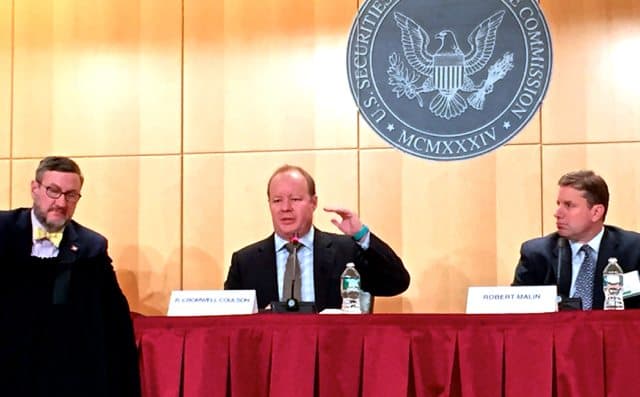 Regulations usually possess good intent, but all too frequently are near-sighted and fall far short of assisting targeted beneficiaries. This may be another case of myopic regulators not taking a moment to think beyond what superficially may appear to be a plus, but ends up being another rule-making boondoggle.
Regulations usually possess good intent, but all too frequently are near-sighted and fall far short of assisting targeted beneficiaries. This may be another case of myopic regulators not taking a moment to think beyond what superficially may appear to be a plus, but ends up being another rule-making boondoggle.
The US Department of Labor (DOL) is proposing rules that may impact Individual Retirement Accounts (IRAs). While convoluted in language, the regulatory approach would make it more difficult to hold shares of OTC securities and other new asset classes in IRAs. The MicroCapClub has a very good write up on the issue, but in brief, according to MCC;
The biggest cause of the problems is … from one of the proposals called the Best Interest Contract Exemptions (BICE) which allows brokers to charge commissions and receive compensation as they have in the past. One provision of BICE is that it limits the type of assets that can be held in an IRA to: “bank deposits, CDs, shares or interests in registered investment companies, bank collective funds, insurance company separate accounts, exchange-traded REITs, exchange-traded funds, corporate bonds offered pursuant to a registration statement under the Securities Act of 1933, agency debt securities as defined in FINRA Rule 6710(l) or its successor, U.S. Treasury securities as defined in FINRA Rule 6710(p) or its successor, insurance and annuity contracts (both securities and non-securities), guaranteed investment contracts, and equity securities within the meaning of 17 CFR 230.405 that are exchange-traded securities within the meaning of 17 CFR 242.600.” Currently, IRAs allow a broader range of products to be held than this limited list. Three specific examples of what would be prohibited in BICE accounts are OTC securities, exchange-traded options, and futures.
 If IRAs are limited to vanilla investments, in a world of growing alternative asset opportunities, this may hurt savers in their mission of building sufficient capital for retirement. If you speak to any number of IRA management firms, an increasing number of investors are holding alternative assets such as crowdfunded equity and debt. Why would the DOL do this? Ostensibly to create an environment of best practices and consumer protection. But the devil is always in the details and the government has an excellent track record of creating confusing rules that befuddle many while benefitting few.
If IRAs are limited to vanilla investments, in a world of growing alternative asset opportunities, this may hurt savers in their mission of building sufficient capital for retirement. If you speak to any number of IRA management firms, an increasing number of investors are holding alternative assets such as crowdfunded equity and debt. Why would the DOL do this? Ostensibly to create an environment of best practices and consumer protection. But the devil is always in the details and the government has an excellent track record of creating confusing rules that befuddle many while benefitting few.
Crowdfund Insider reached out to Cromwell Coulson, CEO of OTC Markets, who obviously has a claim in this fight. Coulson advocates on behalf of maintaining investor choice;
“Unless there is strong public opposition, the proposed DOL Fiduciary Rule looks to limit opportunities for investors to only exchange traded securities while imposing higher standards on their brokers. If passed, the proposed rule will limit investor choice, reduce pools of capital available for companies using JOBS Act fund raising and hurt secondary markets in non-exchange traded companies.”
[scribd id=281149311 key=key-WH1kAuvFl89nFoMPYxg8 mode=scroll]
[scribd id=281149271 key=key-GqG1UGtCr5CtnvFUwu5g mode=scroll]

